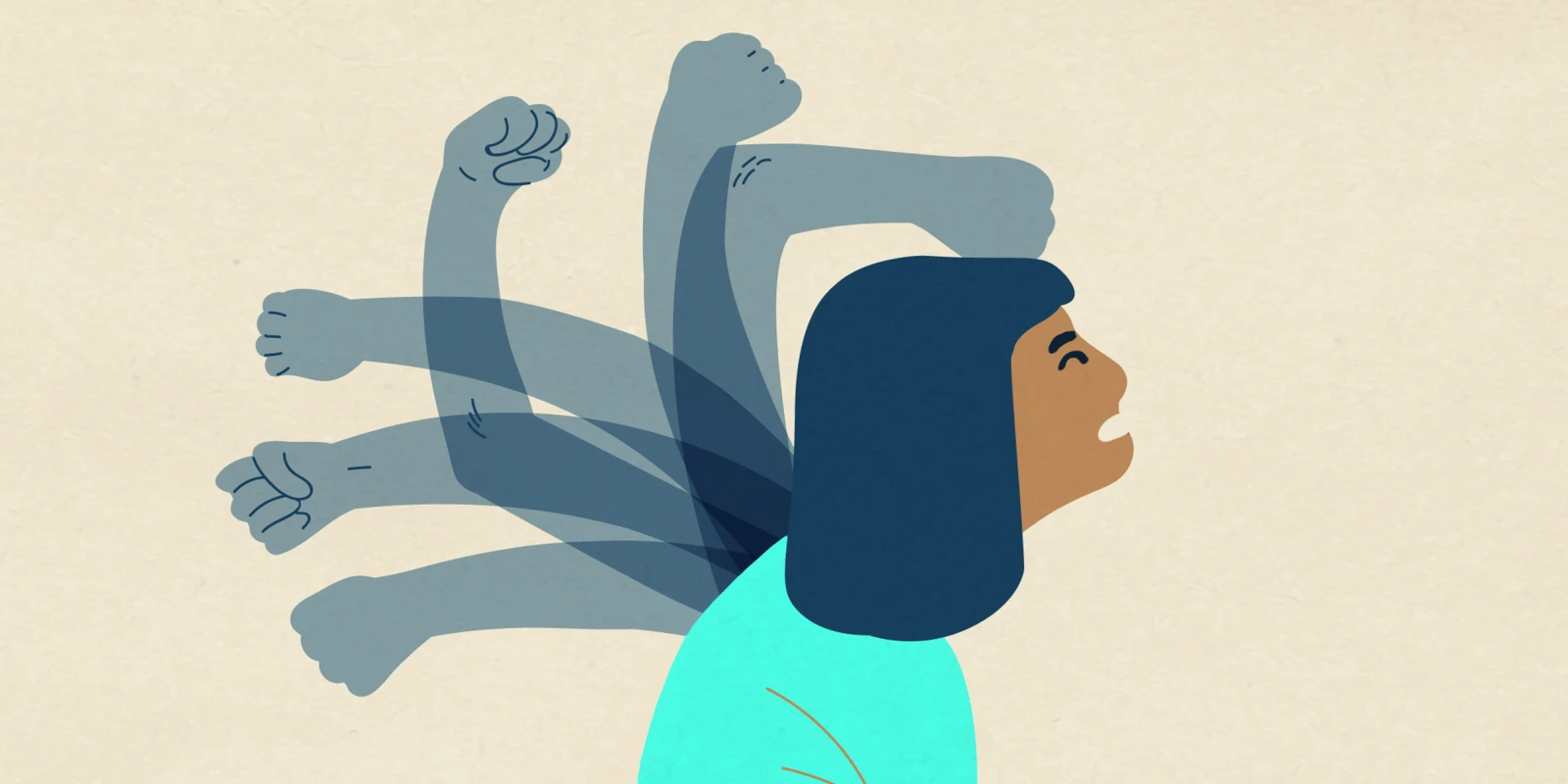One of my children’s favorite pastimes is itemizing my personal failings. And that sweltering August Sunday in 2021 holds pride of place in our family’s oral history, remembered and reexamined, elaborated and expanded, assuming grotesque proportions with each retelling.
I’m typically ambushed at dinner, when a lull in the conversation is broken by the question “Mom, remember that time when you were a Karen?” I see them make brief eye contact, smile smugly, and then get carried away on a sea of hyperbole as they weave the tale.
Urban Dictionary defines a Karen as “a pejorative name associated with uptight, middle-class, do-gooder types of white women.” Karens “cannot be reasoned with, and often expose themselves to widespread ridicule due to outlandish behavior, usually leading to the explosion of a trivial issue into something unnecessarily large.” Ignoring the casual sexism (Darren, anyone? If you don’t believe me, see how Urban Dictionary describes this mensch), the cultural phenomenon of the Karen has important lessons for us all.
What happened, you ask? The details aren’t important. Let’s just say there’s a Chipotle in suburban Minneapolis for which I’m ashamed to ever return and leave it at that. Losing one’s cool at Chipotle may seem unworthy of mention in a world rife with environmental degradation, inequality, and violence. Encountering setbacks while ordering burritos is clearly a first world problem. But that’s the point, isn’t it? Because if we can’t be kind, patient, and understanding when the stakes are this low, then how can we expect to work together to solve humanity’s greatest challenges? And I say “we,” not “I,” because we’ve all been there. If this were exclusively my personal shortcoming, there would be one less entry in Urban Dictionary and my friend wouldn’t have to introduce herself with the disclaimer of “I’m Karen. But I’m not a Karen.”
Although I am able to laugh along with my kids when they good-naturedly mock me at dinner, internally I cringe every time anyone mentions Chipotle. Because the truth is, I behaved badly. As Benjamin Franklin recognized back in the 18th century, “Whatever is begun in anger ends in shame.” For me, as the hunger-fueled rush of self-righteous adrenaline wore off, I was steeped in shame.
Twenty-first century research psychologist and shame shaman Brené Brown defines shame as an “intensely painful feeling or experience of believing that we are flawed and therefore unworthy of love and belonging.” Shame is a close cousin to guilt, but they’re not the same: “Shame is a focus on self, guilt is a focus on behavior. Shame is ‘I am bad.’ Guilt is ‘I did something bad.’” Although The Chipotle Incident seems to fall squarely within the guilt domain, reflecting my behavior, not my being, I still enter a shame spiral of self-critical Socratic analysis every time I think about it. I ask myself questions like, How can I have endless wells of empathy for my patients but not for the person making my burrito? Can I only be kind when I’m wearing a white coat? Am I really a Karen?
Doctors are no strangers to shame. Think about how quickly “I made an error” becomes “I am a failure.” Or “I didn’t do enough” is internalized as “I am inadequate.” We easily fall prey to the myth of our own indispensability, and this hypertrophied sense of responsibility often leads us to some dark, lonely places when we misstep. Brené Brown suggests “If we can share our story with someone who responds with empathy and understanding, shame can't survive.” As a psychiatrist, I’m all about relationship building and empathic listening. But what if we physicians, self-sufficient problem-solvers that we are, learned to lend ourselves our own empathic ear? What if, on days when we’re at our worst, we could learn to treat ourselves with the same gentle, caring presence that we bring to our patients on days when we’re at our best?
“Self-compassion,” according to Kristin Neff, psychologist and self-compassion researcher, “is the ultimate antidote to shame.” Self-compassion is essentially treating yourself the way you would treat a friend, or a patient, who is struggling. Extending tenderness and understanding to yourself when you falter (self-kindness), recognizing that imperfection is part of the human condition (common humanity), and bringing a balanced awareness to your reactions to difficult situations (mindfulness) are the three core elements of self-compassion. It’s learning to be your own best ally, cultivating a state of connected, non-judgmental presence, and showing up for yourself even when you wish you could run away.
I recognize this is a tough sell for the average physician, mired as many of us are in the stagnant waters of stoicism and self-criticism. We hear self-care, we think self-indulgence; we hear self-compassion, we stop listening. Self-compassion invites us to pay attention, to acknowledge our suffering not from the lens of our inadequacy but from a place of kindness and warmth. Self-compassion asks, “What do I need right now?” not “What do I need to do right now?” And if you find yourself thinking that this sounds like self-pity, weakness, or both, I get it. That’s what I used to think, too. I rationalized my harsh negative judgments of others by reserving my most punishing criticism for myself, while simultaneously taking pride in my exacting standards and lack of hypocrisy. False pride, since ultimately this strategy robbed me of connection and joy. Slowly, somehow, I began to realize that the only path toward acceptance of others was through acceptance of myself, which in turn would require self-compassion.
I wish I could tell you more, but truthfully, I’m still learning. If this were a review article in a medical journal, I would summarize the data linking self-compassion to improvements in measures of physical and emotional health and well-being, decreased rates of anxiety and depression, not to mention increased personal responsibility and decreased fear of failure. Full disclosure: I haven’t read the data. I don’t have to. I can feel that it’s working. I’m my own experimental protocol, an n of one, and although it may be placebo, I've found that since I’ve started practicing self-compassion, Chipotle Karen has been pretty quiet, and my kids have had to find other things to talk about at dinner.
Self-compassion is not an invitation to unleash our inner Karen. Self-compassion is the recognition that we each have an inner Karen, and after she erupts and demands to speak to the manager, we can learn to extend her a bit of kindness, acceptance, and maybe even love. For the self-compassion curious, and a list of references, I highly recommend The Mindful Self-Compassion Workbook. Or if that sounds like too much work, you could always just join me in avoiding Chipotle.
Elizabeth LaRusso, MD, is a Harvard-trained psychiatrist who specializes in women's mental health and physician wellness. She lives with her family in Minneapolis. Dr. LaRusso is a 2021–2022 Doximity Op-Med Fellow.
Image by GoodStudio / Shutterstock







